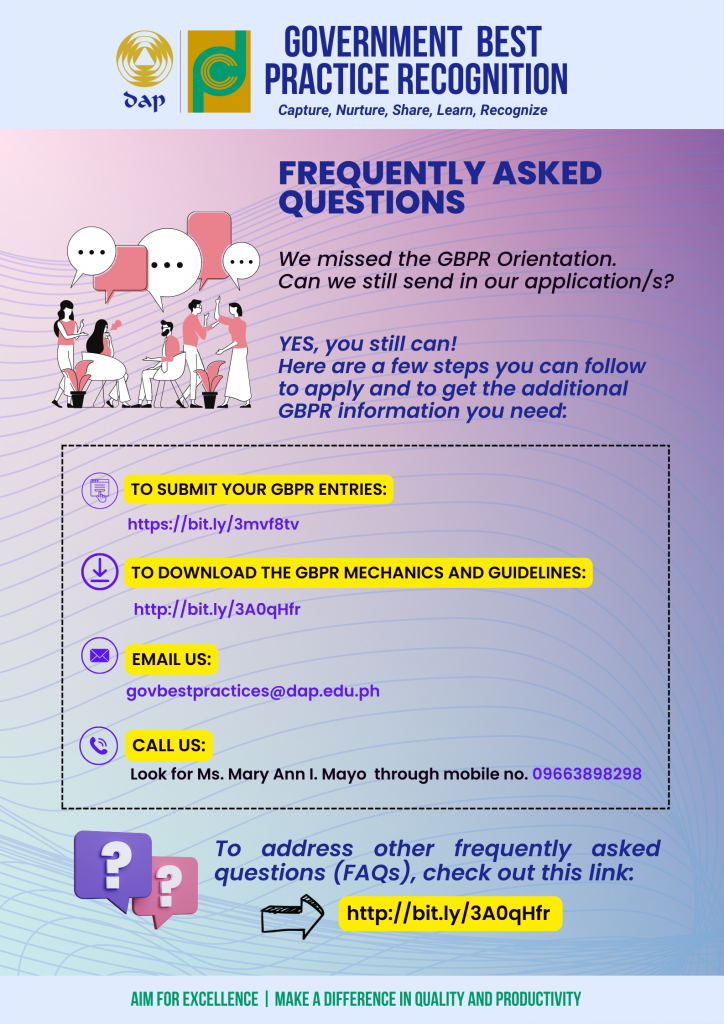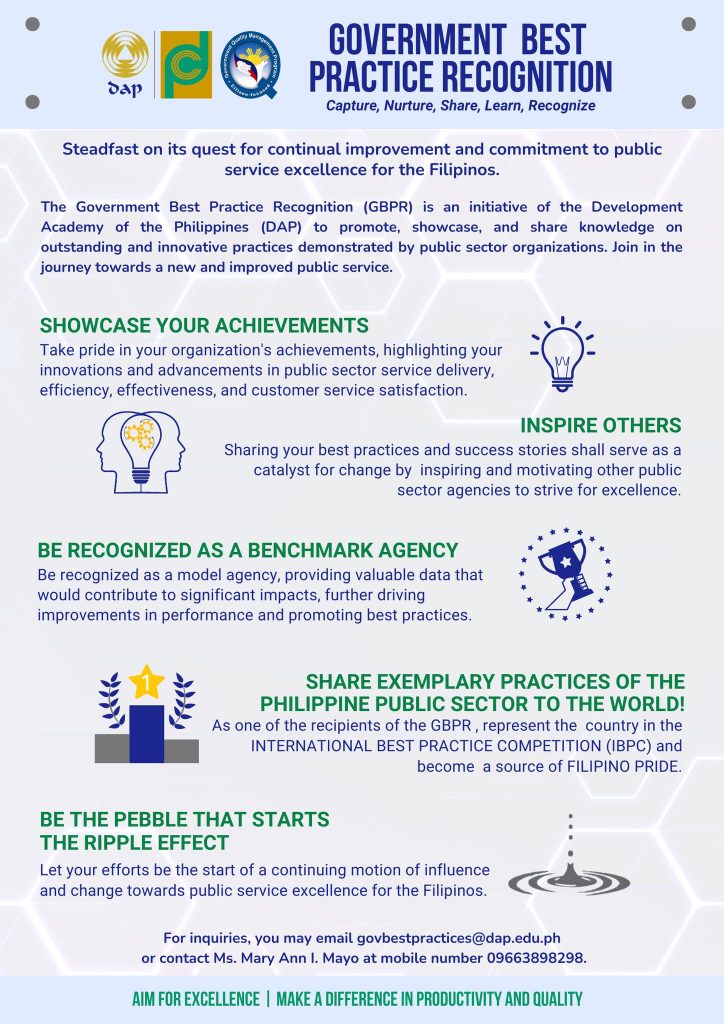In the regulatory reviews conducted by the Modernizing Government Regulations (MGR) Program, it was noted that government regulatory agencies in the Philippines operate in silos that result in limited information sharing among regulators. This type of practice results in duplication, overlap and inconsistencies in regulatory function that, in turn, brings about unnecessary burden of compliance to its regulatees and higher costs of administration/enforcement on the part of the government. It is critical for governments to maintain effective regulations in order to protect public interests and uphold developmental goals while facilitating trade and investments. In order to achieve this, an efficient and effective regulatory management system (RMS) should be in place to ensure regulatory quality and reduce unnecessary regulatory burden.
The RMS shall give a clear perspective of the areas of control in the quality of regulatory services and continuous process improvement for improved citizen satisfaction. It is in congruence with existing internationally accepted standards such as the ISO 9001:2015, ISO 14001:2015, ISO 37001 and on literatures on regulatory management and good regulatory practices of the Organisation for Economic Co-operation and Development, Asia Pacific Economic Cooperation, Association of Southeast Asian Nations and various academic journals.
Consultation workshops with several regulatory agencies were conducted to seek inputs on the improvement of the draft system. The framework was also presented to the Anti-Red Tape Authority, Department of Budget and Management, National Economic and Development Authority and Department of Trade and Industry-Bureau of Philippine Standards (DTI-BPS) for possible integration into the overall policy framework on regulatory management. This 2021, under a Memorandum of Understanding with the DTI-BPS, the MGR Program shall conduct activities related to the adoption of RMS as a Philippine National Standard (PNS) and pilot implement it in selected regulatory agencies.
















